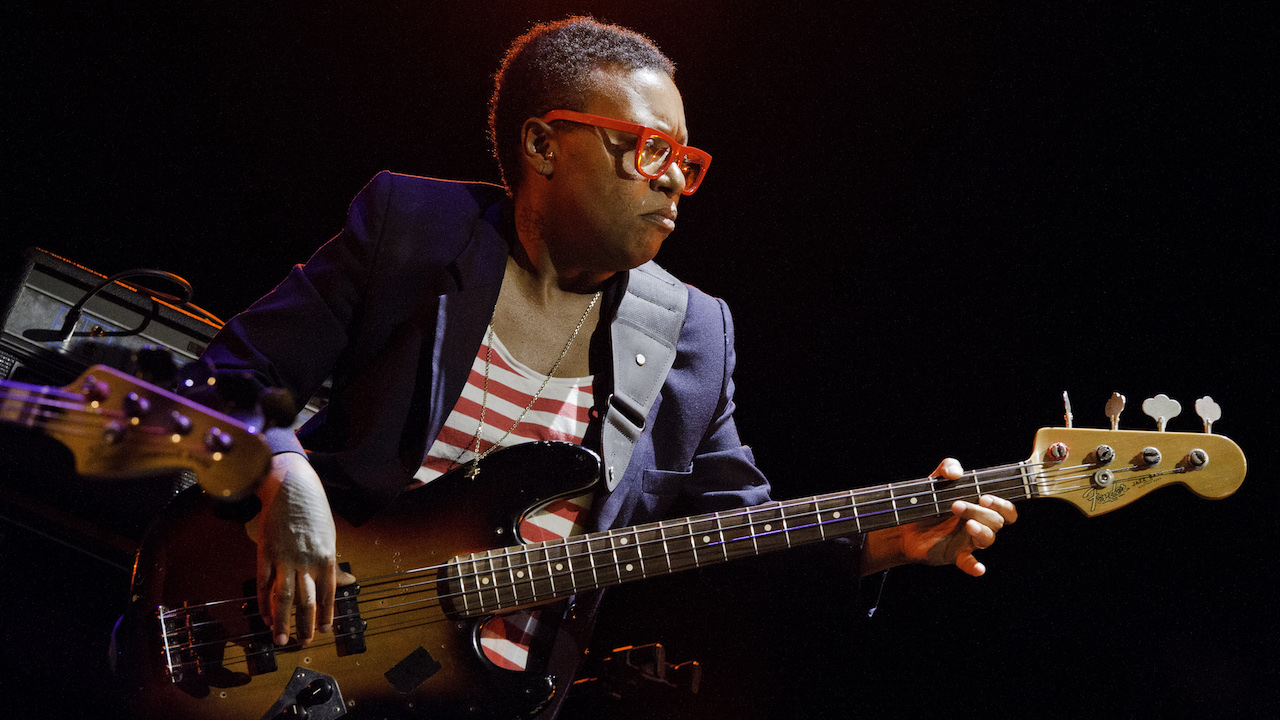
Meshell Ndegeocello has written, recorded and collaborated on music that crosses all genres – among them hip-hop, jazz, psychedelia and heart-on-sleeve rock. From the breakthrough success of her 1993 debut, Plantation Lullabies, to her latest release for Blue Note Records, her skills as a multi-instrumentalist, singer and composer come to the fore in each of her one-person productions. Yet in the studio the bass guitar remains her first port of call.
”I always get the bass and the drums together first and then slowly add things in,” Ndegeocello told BP. "I feel if the bass and drums aren’t working well together then anything you put on top won’t even matter. People want to hear the groove, and the bass is both the harmonic and rhythmic foundation of that.”
The fluid basslines on her new album, The Omnichord Real Book, move to support the song without ever grabbing the spotlight. “I don’t consider myself a bass player with lightening licks. I play like a pop bass player who has listened to a lot of Family Man Barrett, but is also a Jaco-head and wants to be melodic, but in a different way. I could never be as solo-orientated as Jaco. I’m like Prince and Sting – if they all had a baby, that’s my style.”
Ndegeocello's work with drummer Deantoni Parks is also something to behold. “I always know how I want my bass to sound with a drummer. Certain drummers have a really fat drum sound, so I roll off my front pickup for a little more definition and it cuts through better. With drummers that have a really tight, high-pitched sound, I find that my dubby bass tone works and fills up the space. And then I have different tones in between. And like James Brown, I want to make it percolate.”
Listeners also get a heavy dose of grooves whenever they see Ndegeocello play live with her band. As she told Bass Guitar Magazine back in 2009: “Playing live is totally different for me. The record is Meshell, but when you see the band it’s Sly Stone meets Led Zeppelin, opera and jazz. As a bass player I feel you have to be completely adaptive and able to switch. Sometimes you have to step back if there’s a lot of rhythm. You need to know when to play and when not to play.”
From her 1999 masterpiece Bitter to her 2018 covers album Ventriloquism, Ndgeocello always considers the narrative side of each release. “My records are definitely conceptual. I love records like Abbey Road, where a mood is set with the first song. That bassline in Come Together… man! Then you get the next song and it takes you somewhere different. My goal is to make music that fits somewhere between Abbey Road and Joe Zawinul’s albums – stuff to groove to.”
Her expressive vocals share the same qualities as her bass playing. “I definitely sing like a bass player. In the pocket and super simple. I love all kinds of singers, from David Bowie and Prince to Shirley Horn, and they all sang in the pocket. I am never going to be as showy; I just want to be able to tell the story.”
The Omnichord Real Book is further evidence of Ndgeocello’s restless creativity, and despite the 30 years since her debut album, she remains thoughtful about her longer-term aspirations. “I always try to relate to the future and take note of the past, but there is a lesson in everything. Sometimes you are the teacher, sometimes you are a student, and it’s important to be aware of both. I don’t think you are a good musician unless you remember that.”
The Omnichord Real Book is available to buy on Amazon.







